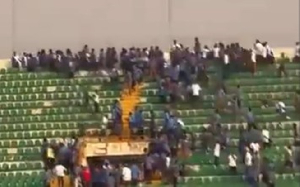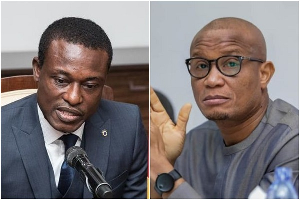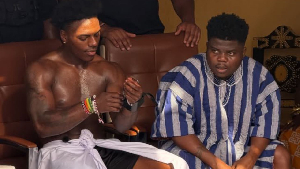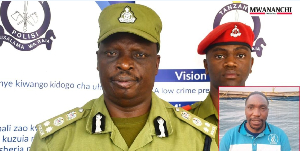Cape Coast, April 22, GNA - Mrs. Pauline Abrefi Oppong, Extensive Services Specialist, of the Central Region Office of the Community Water and Sanitation Agency (CWSA), on Friday, expressed concern about the interferences of some chiefs and elders in the formation of a Water Sanitation Development Board (WSDB) in their areas. The WSDB are instituted at the community level to manage the Sustainable Rural Water and Sanitation Projects (SRWSP) in their respective areas, to facilitate community ownership and management of the projects to ensure their sustainability.
The SRWSP is a World Bank and Government of Ghana project, being implemented in six regions of the country, with Central Region having 13 of its 17 districts benefitting from it, to improve upon accessibility and general environmental hygiene.
Under the project, potable water, as well as institutional and household latrines, will be provided for beneficiary communities and it was expected that it would improve upon their general wellbeing. At the launch of the SRWSP in the Asikuma-Odoben-Brakwa District over the weekend, Mrs. Oppong urged the boards of the beneficiary communities to make the project financially feasible by reviewing tariffs as often as possible and provide the appropriate financial records to promote transparency.
Mrs. Abrafi Oppong advised Assembly Members to take proactive steps to ensure that there was proper management and maintenance of the facilities and asked chiefs and elders not to interfere with the work of the boards.
Mr Henry Asangbah, the Regional CWSA Engineer explained that, the first phase of the project benefitted about 61,172 people in five districts, in the Region with portable water, 665 completed household latrines and 33 institutional latrines.
He said the 13 beneficiary districts in the second phase will each receive a pick up and office equipment, worth $4,400, to help in the monitoring and supervision of its activities.
He hinted that the community pre-selection criteria will take into consideration level of poverty, existing water and sanitation facilities, and water related diseases in the community. Mr Gustav Osiakwan, CWSA Hydro-geologist, stated that the SRWSP like any other project is bound to have its environmental and social impact on the community and therefore there was the need to set strategies to minimize the effect of such hazards. He mentioned some possible impacts as noise, air and dust emissions, vibration of buildings, disposal of construction waste, open pits.
He called on the district assemblies to create awareness and aid its eradication during and after the construction of the facilities. He advised assembly members to ensure appropriate citing of the facilities and plant trees to protect the water catchment areas, and filing of all open pits and trenches, as well as the overall monitoring of the projects.
Mr Yaw Afriyie, an Accountant, urged the district assemblies to be vigilant and ensure that funds allocated for the project are used judiciously and not diverted for other projects. He said the financial reports in the implementation and submission of the project should be done accurately and timely, while safeguarding the project assets and resources.
Regional News of Friday, 22 April 2011
Source: GNA












